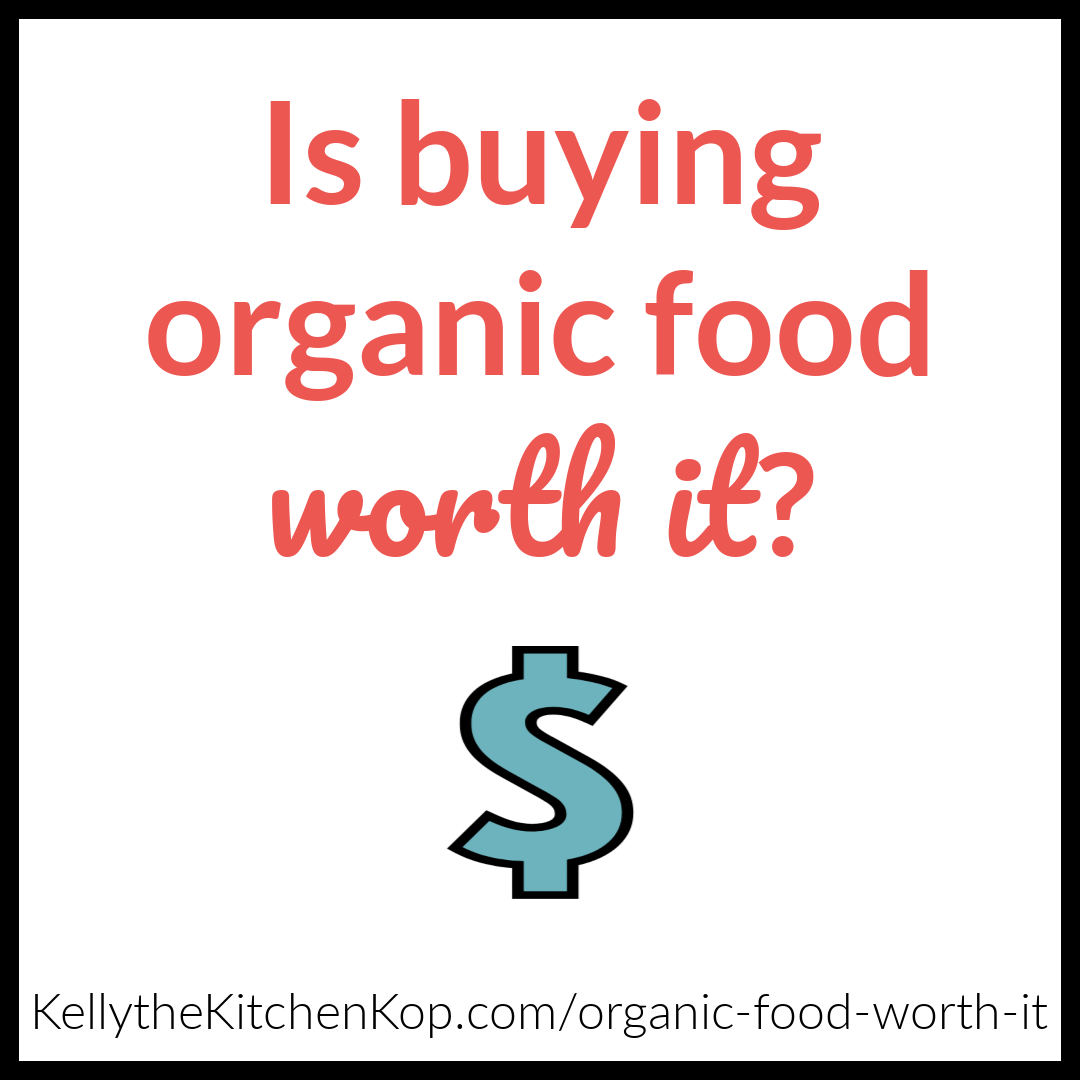
Is Buying Organic Food Worth it?
Recently a reader emailed asking for my thoughts on a video that just might make your blood boil too. Normally I love Prager U videos, and some of this I agreed with, but most parts made me positively crazy. So I decided to do a point-by-point rebuttal to delve into the question, “Is organic food worth it?” For a little back-up assistance, I asked one of my favorite farmers: Luke from Provision Family Farms. (By the way, they do pastured meat drop-offs 2x/month right to your home!)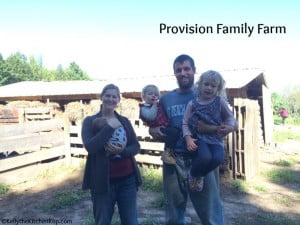
Luke's first comment after watching: “That'll raise your blood pressure.”
Watch this and you'll see what he means… Is buying organic food worth it:
Video transcript (in italics) plus thoughts from a food blogger and a farmer (Luke and I)…
(Video) You are what you eat,” goes the old saying. And everywhere we are urged to eat organic: it's more nutritious, pesticide-free, and protects animals and the environment. At least, that's what we are being told – or rather, sold. And thanks to a lot of very effective marketing, many people believe it. That's why, when researchers at Cornell University gave study participants a choice between two identical items, one labeled “organic” and one “regular,” the participants confidently declared the “organic” choice to be lower in calories and more nutritious.
Who ever said organic has fewer calories? That's just wrong.
And as far as whether or not it's more nutritious, I've taught for YEARS that “organic” only tells you what's NOT in your food! You're avoiding things like GMOs, chemical preservatives, fake colors and flavors, antibiotics, and chemical pesticides, to name a few. It does NOT tell you how nutritious it is. That's why I've encouraged you to get to know your farmer so you know how your food was grown and raised. Unless you do that, you can't know how dead or alive the soil was that your food was grown in, how far it was shipped, or whether the meat came from a typical factory farm/feedlot that only gives the animals feed grown “without pesticides” or if the animals were actually raised well, out on pasture and treated humanely. I'm sure you agree that we don't want conventionally-grown factory-farmed meat, whether the animals ate organic feed or not.
Now having said this, in the winter I DO sometimes buy organic produce from the store–when I want a tomato in my salad for example, because I figure the organic option is at least a little better than conventional. Again, because of what is hopefully NOT on it (mostly pesticides in this case), but do I even know that for sure, since it usually comes from Mexico? Nope, so in this case I'm not only hoping it's at least a little better, but I'm also voting with my food dollars about what is important to me as a Mom. Unfortunately it really probably has very little nutrition left anyway, since it came from so far, which is obvious from how bland the taste is. It is certainly not a perfect world, and our food system does have a ways to go, but we're getting there!
Luke: “In 2014, Whole foods, the largest organic food provider in the world, launched its first national ad. In the same year Walmart spent $2 billion on advertising. Whatever pressure there is to buy good food is not marketing but grassroots–people genuinely concerned about health or environment.”
~~~~~~~
(Video) They also said they'd pay 16-23% more for the organic choice. But these beliefs about organic food have nothing to do with reality. In 2012, Stanford University's Center for Health Policy did the most comprehensive comparison and found organic foods are not nutritionally superior to conventional alternatives.
Yep, as I said, we already knew this. Duh.
Luke: “However, a quick search of ‘Dirty Dozen‘ can make one very nervous about many conventional crops, like strawberries, which are currently #1 on the list of the most-sprayed produce.”
~~~~~~~
(Video) And a more recent review of 20 years of research into animal products by Italian researchers confirmed these findings. The authors concluded: “Scientific studies do not show that organic products are more nutritious and safer than conventional foods.”
Now that I'm also not buying. Not necessarily more nutritious, no (unless it was grown by your farmer nearby, who knows how to keep his soil nutrient-dense and grows/raises foods sustainably, so not only is it better for the environment, but it's more nutritious and tastes amazing too!), but I'd say it IS safer, again, because of what's NOT in it. (See that list above.) *Also, check out this comparison of eggs from hens raised in two different ways and which ones are healthier — HA, take that Bjorn!
~~~~~~~
(Video) That's fine, you might say. You don't eat organic foods just because of the health benefits, but because you care about the treatment of farm animals and of the environment. Unfortunately, the facts don't support these beliefs either. Animals on organic farms are not generally healthier than animals on regular farms.
Wow, they are NOT making the proper comparisons! They are comparing things like conventional factory farms that give the animals “regular” feed to factory farms that give the animals organic feed–no thanks on both! Read what Joel Salatin has to say about that. Instead they need to compare an industrial factory farm to the farm where we buy our meat or to the farm where I get a lot of our produce. There you will find DRASTIC differences in nutrition (and taste), guaranteed! (Don't have a good local source for pastured meats? Try here. Or I trust this online company too.)
~~~~~~~
(Video) A five-year US study of dairy farms showed that “health outcomes [for animals on organic farms] are similar to conventional dairies.” And the Norwegian Scientific Committee for Food Safety reached a similar conclusion. It found “no difference in objective disease occurrence” on organic dairy farms as compared to conventional dairies.
See previous point. Animals on farms where traditional, sustainable farming practices are used DO in fact live much longer, and happier lives. (Read more about that here in the last question on the Q&A page of one of my favorite farms.)
Who else drives by a farm with cows out grazing on green pasture and proclaims to their family, “See the happy cows? Now that is a smart farmer!” (Moms, do you do that too?!)
~~~~~~~
(Video) And while pigs and poultry on organic farms may enjoy better access to open areas, this freedom, studies show, also increases their exposure to parasites, pathogens and predators.
This is absolute crap. It's not that this stuff never happens, but good farmers know how to minimize it and manage any of these issues as they might come up. Just don't even try to tell me that animals crammed into tiny spaces with no access to sunlight, fresh air, or beautiful pastures for their entire lives is better for them (and US who eat that meat) than the humane way animals were treated for ALL time, up until just the last 50-75 years?!
Luke: “The type of pathogen exposure isn't noted here. Conventional animals receive feeds with broad spectrum antibiotics in them, but never in organic diets. Either animal can get pneumonia, but only industrially-raised animals will get MRSA. Factory farms are often biosecure, terrified that a stray bird could wipe out the entire crop of chickens. Pastured animals are exposed to lots of interesting things. And yet, somehow, the chickens at Polyface farm tested 1/50th the bacteria count after processing.”
~~~~~~~
(Video) As for the environment, yes, organic farming will mean that in any one field, a farmer will use less energy and create fewer greenhouse gases. But there's a problem here. By forgoing fertilizers and pesticides, organic farming is much, much less efficient than standard farming, which means that organic farmers need much more land to grow the same amount of food.
And AGAIN, they're not making the proper comparisons. Plus, a good farmer knows how to keep his soil healthy, his pastures fertile and lush, and how to utilize his land well. As with anything, some will be better at this than others.
~~~~~~~
(Video) A major study in Europe found that to produce the same gallon of milk organically, you need 59% more land. To produce meat, you need 82% more land. And for crops, it’s more than 200%. And more land for agriculture means less land for nature. If U.S. agricultural production was entirely organic, it would mean we would need to convert an area bigger than the size of California entirely to farmland.
Luke: “Organic farming may use more land, but I bet if it continues to grow, people will find a way to produce organically to meet the needs of the nation with the land available to them. Projections are pliable things. In 1894 English reseachers proved mathematically that London would be 9′ deep in horse manure by 1950. The topic was a subject of the world's first international urban planning convention in 1898. But somehow, it didn't happen. Organic farming may seem to use more land, but how much additional land was damaged by the environmental costs of fertilizer and pesticides, both in their manufacture and after use? Also, the land efficiency of chemical farming represents 70 years of federally funded research to that end. Finally, the gap may also close as organic soils appreciate in humus (dark organic matter in the soil formed when plant and animal matter decays, which contains nutrients for healthy soil), since the humus isn't being burned out by excessive nitrogen.”
~~~~~~~
(Video) Economically, the lower productivity of organics means we have to commit more resources– land, labor and capital. The total cost to the U.S. economy of going organic would run to about $200 billion annually.
Luke: “Since the U.S. spends approximately half (per capita) of the next nearest country on food, the country could afford another few billion. Even the fictional number 200 billion is small potatoes compared to 3.5 trillion dollar healthcare bill.
~~~~~~~
(Video) But, surely organic food means no pesticides, right? Wrong. Organic farming can use any pesticide that is “natural.” Natural pesticides include, for example, copper sulphate and Pyreethrin. The former has resulted in liver disease in vineyard sprayers in France, according to a 1996 study; and the latter, a 3.7-fold increase in leukemia among farmers who handled it compared to those who had not, according to a 2002 study.
Luke: “A little contrast is in order. Pyrethrum derivatives (based on the chrysanthemum) are generally benign to humans. Organophosphates, used in conventional farming, are practically bio-weapons, and Neonicotinoids are very persistent in wiping out native insects. Unfortunately it is legal for U.S. companies to manufacture pesticides that have been banned in the U.S., for sale to 3rd world countries (where people almost never have adequate PPE or training).”
~~~~~~~
(Video) Yes, it is true that non-organic foods carry a higher risk of pesticide contamination. But that risk is almost non-existent. 2420 extra cancer deaths per year. You have a similar chance of being mauled to death by a cow. In sum, organic food is not healthier for you, nor is it better for animals and the environment than conventionally farmed food.
This is also crap. They have no way to know this, who would pay for a study to properly compare these two sides?
~~~~~~~
(Video) I know this goes against everything you have come to believe, but that only proves the power of marketing.
This video also smacks of a play on manipulative words, and makes me wonder if this guy is connected somehow to Monsanto, who would like nothing more than to squash the whole organic movement. In an internet search, I did find a 2014 Monsanto Facebook post where they were praising Bjorn Lomborg, the guy featured in the video.
He works for the Copenhagen Consensus Center, where their almost three million dollar revenue funding source remains undisclosed, hmmmm…
Luke: “He works hard to appear neutral, but to so easily overlooks the many benefits of organic farming (increased soil retention, farmer/employee health, increased species diversity, etc.), which signals that he does have an agenda, and probably a donor.”
~~~~~~~
(Video) Organic food is a First World luxury. And while buying it is just as valid as any other luxury purchase, one should resist any implied moral superiority –
I certainly do not feel “superior” to anyone when I buy organic. It is my way, as imperfect as it can still be at times, to try to source “better” food for my family AND to vote with our grocery dollars to tell the food industry what we want more of. The “No GMO” label or the occasional, “No artificial colors!” that you'll see nowadays–these improvements are only because myself and other Mama Bears have been voting with our food dollars for several years now.
Luke: “It's odd how the entire world throughout all of history could afford only organic food before 1950.”
~~~~~~~
(Video) As, for example, when fashion designer Vivienne Westwood famously exclaimed that people who can't afford organic food should “eat less.” Unfortunately, a lot of people in the developing world don't have the option of eating less. They worry about eating, period. To do that they need access to cheaper food, which means more access to effective fertilizers and pesticides.
Feeding the poor is so important, of course, but feeding them food that will make them sick in the long run, is that really helping them? And treating the land with chemicals that will harm it long-term and affect the future ability to grow more food, is that wise? I know it's a struggle just to feed the poor, let alone feed them better quality food, but isn't the answer more in teaching them to grow/raise their own foods in healthy, traditional ways? This is a bigger issue than anything I can figure out here on my little blog, but he's twisting words trying to make Monsanto seem like a hero, when clearly they're not. Read more at that link and this one: What's really behind GMOs.”
Luke: “The world overproduces food already, for poor countries to get food, they need to grow it themselves. The green revolution (fertilizer, pesticide and hybrid seed) had short term success in China and Brazil, but failed horribly in India and Africa. Nations that don't protect their environment and domestic food production turn into moonscape — rocky and barren (Haiti vs. Dominican Republic). I think people in 3rd-world countries have the right to grow chemical-laden food or nutritious food, but they also have the right to an informed decision.”
~~~~~~~
(Video) So, next time you see organic produce at the supermarket, don't just swallow the marketing campaign without some critical thought. I'm Bjorn Lomborg, president of the Copenhagen Consensus Center.
I agree that we need to keep thinking, learning, researching all of this for ourselves, but also don't just blindly swallow this guy's rhetoric either. Okay?
Share your thoughts below and jump in on the conversation: Is organic food worth it for you?
For help with all of this and much more, especially if you're ready to get you and your family over to more real foods without being overwhelmed, check out my book, Real Food for Rookies!
Read more about it here or just get a copy here.
More you might like — scan through and see what titles grab you…
- The Only Silver Lining: We’re Waking People Up to the Bottomless Pit of Corruption {Plus a GMO Refresher}
- Do We Deserve to Know What’s In Our Food?
- What Knowing Your Local Farmer Looks Like and How Easily YOU Can Help Your Local Farmer Grow
- The Quest for Nutrient-Dense Food — High-Brix Farming and Gardening
- Cowspiracy Film Farce — It’s Not WHAT You Eat, it’s HOW its GROWN! (And Why Allan Savory is my HERO)

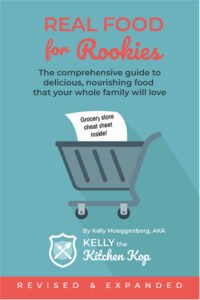

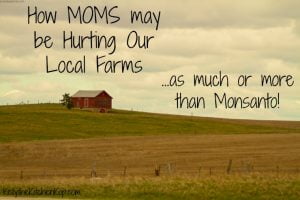

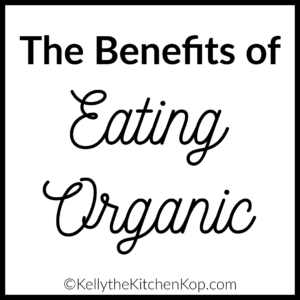


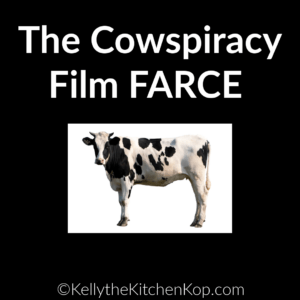
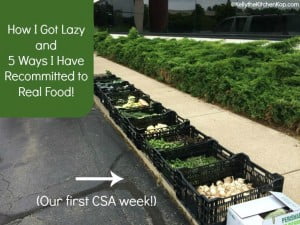


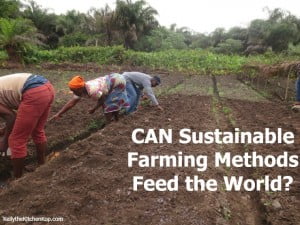
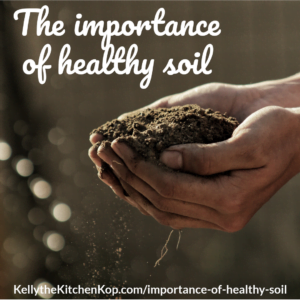

Tim Robinson says
(Sarah) I saw an add on tv mentioning the lawsuits for Roundup. I wonder if this has caused people to wonder about the foods being bathed in the chemical and then we consume large amounts of the same chemical in the lawsuit. My guess is they probably are only half listening to the commercial and don’t draw a connection.
Sarah says
Kelly – what you said about feeding the poor that will make them sick – I couldn’t agree more. I have been wondering that as a Catholic. We want to feed them first, but is it bad to give food pantries GMO food if that is all you can afford to give them (and feed your family a good diet first)? I’m conflicted about this.
On another note, I would love to see food provided at church gatherings improve a lot. Donuts after mass, fish frys and spaghetti dinners are nowhere near healthy. They are great for fellowship of course, but how can we get our churches to serve healthier food? I’d love to hear your thoughts!
KitchenKop says
This is a tricky issue for sure. If I had the time or energy to fight this fight, I’d tackle one thing at a time, like the donuts… But I don’t even know what I’d replace it with that would entice them as much as the crap does. Do you have any ideas??
Kelly
Sarah says
I was thinking the same thing about donuts and some people might be mad for someone taking it away! The best thing I could think of would be something homemade. I’m not sure if anything commercial would be healthy other than fruit. Maybe homemade muffins with good ingredients? And if they do a pancake breakfast, you would be limited by a budget. I wonder if the church would agree to a bigger budget if you could buy real maple syrup and healthier flours for the pancakes. I doubt they would give enough for pasture raised eggs and bacon. I had a vision of more churches having gardens that children from the school could be in charge of. I don’t know if churches would ever agree to having their own chickens? I know the focus is more spiritual, but it is important to nourish your physical body as well.
KitchenKop says
All good ideas, but I just don’t think many churches would go for it, sadly… They’d probably think it would just be easier to not feed people, and then there’s no fellowship…
One thing that I think would be a good solution is to encourage more small group fellowship activities, and each family take turns cooking real food for their group. We are actually blessed to be a part of a group like this! It’s a program our church offered as an option for faith formation for kids, so instead of sending them to “CCD” one night a week to sit in a classroom and work on church handouts or whatever to teach the faith, we meet in each other’s homes with 5 different families and talk about different topics. This is great not just from the real food aspect (and some families are more into real food than others, but it’s all homemade and not donuts!), but also because these kids are hearing their parents discussing faith issues and hearing them pray out loud. It’s especially good for them to hear their DADS praying out loud and talking about their walk with Jesus. It’s really pretty awesome. 🙂
Kelly
Sarah says
I love this idea! I think this way encourages more fellowship and more people to be open to faith/Jesus. I think most people just see CCD as a boring requirement to get out of the way. I have a newborn now, but maybe in the future I can get involved in something similar. ?
Michele Riley Ohmer says
Sometimes it’s not about the cost but the availability.
Donna Barthule says
They were serious in that video? Wow.
We are all organic as we can, and what we can’t is at very least GMO-free.
I serve my family organic foods because we want less biotech pesticides, herbicides and fungicides. Because we know that organic also means the way the soil is maintained. Because certified organic is also GMO free.
Organic costs pennies on the dollar more than the toxin-laden foods, but scrimping in a food budget is insane. Scrimp elsewhere.
Karianne Leslie Rondeau says
Yes, yes, yes
Julia says
Luke: “Odd how the entire world throughout all history could afford only organic food before 1950.” Precisely what I was thinking. And the whole schpiel, I’m quietly saying to myself, “Follow the money. Follow the money.” Who is the guy’s sponsor? I personally have experienced improved health by switching to organic. I can TASTE the difference between organic and conventional carrots, celery and broccoli.
KitchenKop says
“Follow the money” –> Exactly Julia!
Sarah says
I usually enjoy Prager U. I had not seen this video. I wish that I could remember the source but a few years ago I read an article talking about the university studies done on organic foods that showed them being no more nutritious than the conventional foods. The explanation for this is that the soil the organic foods are grown in is the same that the conventional food was grown in the year before. That soil is damaged and nothing has been done to revive it. I know organics are worth the extra cost. The fortunate/unfortunate side of it is that it makes me a lot more sensitive to conventional when we eat out or are traveling.
KitchenKop says
Yes, it’s too bad they got it wrong on this one!
Kelly
Jodie Hagan says
Wow, so often Prager U is right on, but they are WAY off on organics.